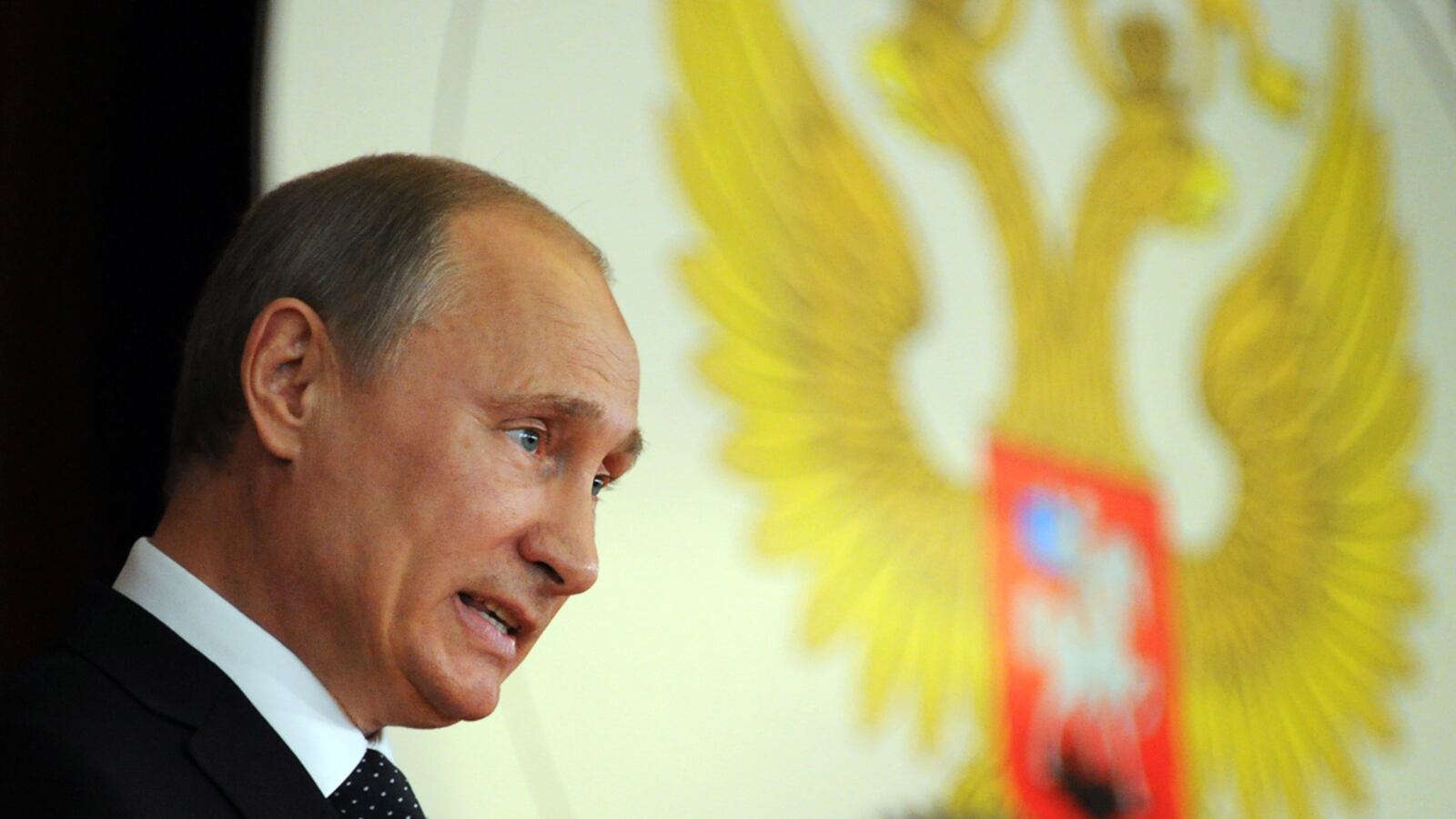Russian officials are striving to hold onto their economic interests in Syria by supporting the government of Bashar al-Assad. But they are paying a steep price.
Last week Saudi tycoon Mubarak Swaikat cancelled multimillion-dollar contracts with Russian gas and oil companies, a Kuwait newspaper reported. “This is the least that I can do to support our brothers in Syria,” he told Al Aan, an online newspaper. Earlier, Saudi businessmen boycotted a delegation of big Russian business companies at the chambers of commerce in both Jeddah and Riyadh. It was to demonstrate the attitude for Moscow’s “unfair and unjust way they have been dealing with Syria,” a Riyadh Chamber of Commerce official said. And Russia’s diplomatic relations with Qatar have been downgraded since last December when Ambassador Vladimir Titorenko was beaten by Qatari officials in Doha airport. But none of these messages or protests changed a thing. The Kremlin stuck with Assad.
So far the Kremlin’s alliance with Assad has cost Russian companies long-term contracts with other Arab nations. Russian politicians are called a “dictator’s friends,” and diplomats are treated coldly. Moscow is seen as the Syrian opposition’s enemy. And while Russian authorities repeat that theirs is a principled position—the worst scenario for Syria would be civil war or chaos if Assad falls, they say—large scale economic losses await Russia in the Middle East whatever the outcome.
Once official Moscow declares full support for another regime, it sticks to it, say pro-Kremlin experts, so as not to fall into the same trap it did with Libya, where it wound up supporting the losing side. But independent analysts believe that Russian officials have miscalculated and once again backed the wrong horse. Other analysts argue that Russia was thinking less of its image and more about the billions it earned from weapons shipments sent to Syria over the years.
“By betting on old dictatorial regimes, Russia lost its popularity,” said Ildar Davletshin, a senior energy analyst at Renaissance Capital. “That spoiled plans for Russian companies exploring gas and fields or building gas pipelines” in the Middle East.
The future is uncertain for long-term contracts that Russian companies such as Lukoil, Tatneft, and Gazprom had in Libya, Syria, and Saudi Arabia. Analysts say there is no guarantee that pipelines built by Stroytransgaz in Syria or Saudi Arabia would bring much profit to its owner, Gennady Timchenko, considered close to President Putin. Nobody can predict how many more days or months Russian naval vessels will be docked in the port of Tartus, in Syria, or if the more than 30,000 Russian citizens living in Syria today are going to stay safe.

“It will take time to calculate the total loss caused by Russia’s official position,” Davletshin said.
Neither failed contracts nor spoiled relationships seem enough to convince official Moscow to change its strategy. In yesterday’s interview with The Times of London, prime minister Dmitry Medvedev asked rhetorical questions, e.g., “Where do resolutions end and military actions begin?” and expressed hopes that in spite of thousands dying in Syria, a peace plan proposed by U.N. and Arab League envoy Kofi Annan might still work.
Georgy Mirsky, a senior researcher at the Russian Academy of Sciences, is convinced that Moscow’s strategy is dangerous. “By slowing down international involvement, Russia helped al Qaeda to strengthen their positions in Syria,” Mirsky said. “At the same time, we are approaching a major conflict between Shia Iran and Sunni supporters of Syrian opposition in Arab countries, where Russia would be obviously seen as a lonely Iran’s ally.”
Mirsky’s former students in the Russian foreign ministry understand “deep down” that Moscow should have supported the U.N. Security Council sanctions long ago, the academic said. The “problem is that the decisions are made in the Kremlin.”






